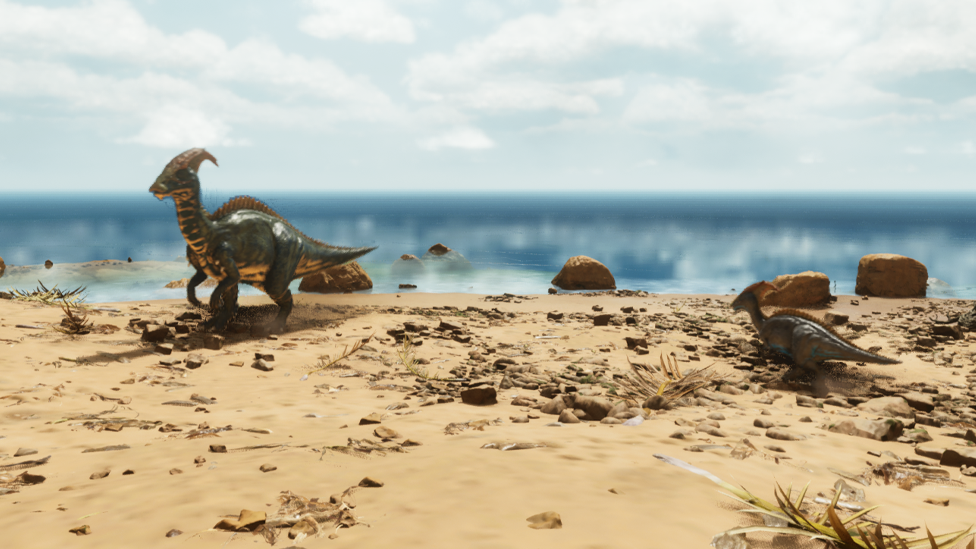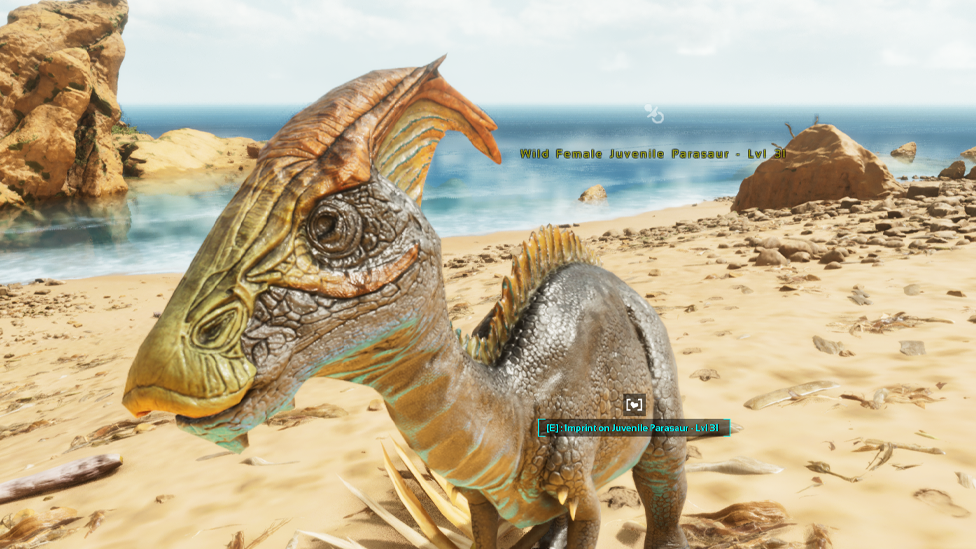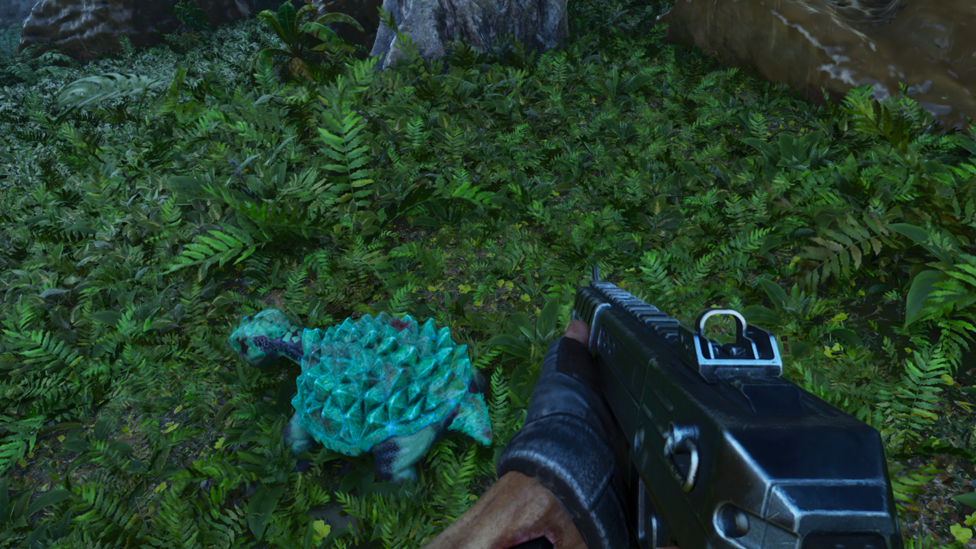ARK Survival Ascended How To Claim Wild Baby Dinosaurs
Why Wild Baby Dinosaurs?

Make Your Own ARK: Survival Evolved Server
Your own ARK: Survival Evolved server is only 5 minutes away!
Start Your ARK: Survival Evolved Server Today!
Wild ark ascended baby dinos are not just cute—they’re strategic. Claiming one early on can give you an edge without requiring the usual taming grind. But don't let down your guard because their parents will fight like it’s dino-parent PTA night to keep you away. That said, if you play your cards right, you’ll have yourself a new little companion in no time.
Step 1: Prep Your Dino Lunchbox
Before you even think about going baby dino hunting, you need to stock up on food. Wild baby dinosaurs need constant feeding once claimed, so load up on the following:- Meat: For carnivores, raw meat or cooked meat works great.
- Berries: If it’s a herbivore baby, gather those berries like you’re prepping a fruit salad.
- Kibble: If you’ve got it, kibble is a premium option for faster, better-fed dinos.
You don’t want to be stuck with a starving baby dino—it’ll just be a bad day for everyone involved.
Step 2: Where to Find Wild Baby Dinosaurs
The thrill of the hunt! Wild ark survival ascended baby dinos don’t have a specific spawn location, so this part involves a little patience and exploration.Key Tips:
- Stick Close to Parents: Baby ark dinos usually stay near their parents. So if you see a larger dinosaur wandering around, keep an eye out for a mini-me tagging along.
- Search Riverbanks and Plains: These areas often have higher dino activity. You might get lucky and spot a family group.
- Be Ready for a Fight: Parent dinos don’t play nice. Even normally passive creatures will attack you if you get too close to their baby.
Pro tip: Not all small dinos are babies. Juveniles look similar but can’t be claimed. Double-check before picking a fight with the parent!
Step 3: Dealing with the Parent
To claim the baby ark, you first have to handle its overprotective parent. There are two ways to do this, depending on your playstyle and resources:Option 1: Defeat the Parent
- Get Your Weapons Ready: A bow, crossbow, or firearm works well. Aim for quick takedowns.
- Keep Your Distance: Especially if the parent is a carnivore. You don’t want to be lunch before you get the baby.
- Take Down the Parent: Once defeated, the baby will be claimable.
Option 2: Tame the Parent
- Use Tranq Arrows or Darts: Knock out the parent instead of killing it.
- Tame It: Follow the usual taming process by feeding it appropriate food.
- Claim the Baby: Once the parent is tamed, you can imprint on the baby without any drama.
Step 4: Claiming the Baby

Once the parent is dealt with, it’s baby time! Approach the little one and follow these steps:
- Imprint on the Baby: Press the imprint button when prompted. This action claims the dino as your own.
- Name Your Dino: A naming screen will pop up. Give your new companion a fitting name (or something ridiculous—you do you).
- Feed It Immediately: Place food in its inventory right away to ensure it doesn’t starve.
Step 5: Getting the Baby Home
Here’s the thing: wild baby dinos are slooow. If you plan to bring your new buddy back to base, you’ll need a strategy.Transport Options:
- Raft: Build a raft and ferry the baby across water.
- Tamed Pteranodon: Use a flying dino to carry the baby (if it’s small enough).
- Carry It Manually: If it’s a short distance and safe, walk it back with you.
Make sure the path is clear of predators, or you’ll be in for a heartbreaking journey.
Things to Keep in Mind
- Protect Your Baby Dino: Newly claimed babies are vulnerable. Keep an eye out for predators while traveling.
- Monitor Food Levels: Baby dinos burn through food quickly. Check their inventory often to avoid hunger problems.
- Watch for Juveniles: Remember, you can’t claim juveniles. Save your resources for true babies.

Why Claiming Babies Is Worth It
Claiming a wild baby dino isn’t just about skipping the early-game taming struggle. It’s also an opportunity to bond with a dino that grows under your care. You get to shape its stats, feed it properly, and make it an integral part of your survival squad. Plus, you get bragging rights for nabbing a baby straight from the wild.Your Ultimate Game Server Hosting With Scalacube
Scalacube gives you the best gaming experience by hosting critically acclaimed titles like ARK: Survival Ascended.If you want to upgrade your ARK ascended experience, consider ARK Survival Ascended server hosting. With a dedicated ARK Survival Ascended server, you can customize your server by choosing player slots, adding various mods, and picking the perfect plan—all without any hassle. If you are wondering how to create ARK Survival Ascended server, its easy 1-click installation and fast setup mean your server will be ready in minutes, leaving you more time to explore and survive. Whether you’re going solo or building a dino-taming squad, reliability, and competitive pricing make it the ultimate choice for hosting your ARK world.
Wrapping Up
The world of ARK: Survival Ascended is all about survival and strategy. Claiming wild baby dinosaurs is one of the smartest—and cutest—ways to bolster your dino collection early in the game. Sure, it takes some patience, a bit of luck, and maybe a few close calls with angry dino parents, but the rewards are totally worth it.Frequently Asked Questions
Where do you find wild baby dinosaurs in ARK?
There is no specific location where baby dinos are guaranteed to spawn, so you must rely heavily on luck. A wild baby dinosaur usually follows its parent around, so you can easily spot them around larger dinosaurs.
How do you claim wild baby dinosaurs in ARK?
Just pull out your weapon and defeat the parent to tame it. Once you've completed that, you'll be able to approach the baby dinosaur and imprint it, effectively claiming it.
Can the gigantoraptor have wild babies in ARK Ascended?
The Gigantoraptor is presently the sole option to claim wild babies without "losing" any more taming levels. Although the first trailer for ARK: Survival Ascended shows a wild Argentavis with its babies, those babies cannot be discovered in the wild.
Make Your Own ARK: Survival Evolved Server
Your own ARK: Survival Evolved server is only 5 minutes away!
Start Your ARK: Survival Evolved Server Today!
Copyright 2019-2026 © ScalaCube - All Rights Reserved.